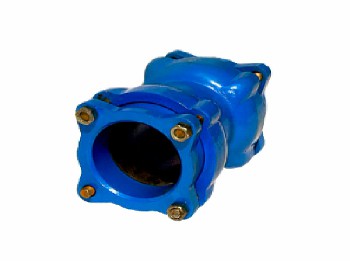What are Cast Iron Fittings?
Cast iron fittings are components used to connect, divert, or control the flow of liquids and gases in plumbing systems. They are made from cast iron, a robust and long-lasting material known for its high resistance to pressure and corrosion. Cast iron fittings come in various shapes and sizes to accommodate different plumbing needs.
The Benefits of Cast Iron Fittings
Durability and Longevity
One of the primary advantages of cast iron fittings is their exceptional durability and longevity. They have the ability to withstand high pressure, making them ideal for plumbing systems that require reliable performance over extended periods. Cast iron fittings are resistant to damage caused by temperature fluctuations, chemical exposure, and physical stress.
Noise Reduction
Cast iron fittings have excellent noise reduction properties. Their dense structure helps minimize the transmission of sound, making them an excellent choice for buildings where noise control is essential. By reducing noise levels, cast iron fittings contribute to a comfortable and peaceful living or working environment.
Fire Resistance
Another significant advantage of cast iron fittings is their fire resistance. Cast iron does not burn or contribute to the spread of fire, making it a safe choice for plumbing systems. In case of a fire incident, cast iron fittings can help contain the flames, providing valuable time for evacuation and firefighting efforts.
Types of Cast Iron Fittings
There are several types of cast iron fittings available, each designed for specific plumbing applications. Understanding the different types can help in selecting the appropriate fittings for a given project.
Cast Iron Pipe Fittings
Cast iron pipe fittings are used for connecting and extending cast iron pipes. They come in various configurations, such as elbows, tees, couplings, and reducers, allowing for precise and secure connections.
Cast Iron Soil Pipe Fittings
Cast iron soil pipe fittings are designed specifically for soil and waste drainage systems. These fittings provide reliable and leak-free connections, ensuring the proper flow of waste materials.
Cast Iron Drainage Fittings
Cast iron drainage fittings are used in stormwater drainage systems. They are designed to handle the higher volume and velocity of water during heavy rainfall or storms.

Installation and Maintenance of Cast Iron Fittings
Proper installation and regular maintenance are essential for maximizing the performance and lifespan of cast iron fittings.
Proper Installation Techniques
During installation, it is crucial to follow industry best practices to ensure leak-free connections and proper alignment. Adequate support and anchoring of the fittings are necessary to prevent undue stress and movement.
Routine Maintenance
Regular maintenance is necessary to keep cast iron fittings in optimal condition. This includes inspecting for leaks, corrosion, and blockages. Cleaning and clearing any debris or sediment buildup are also important to maintain uninterrupted flow.
Applications of Cast Iron Fittings
Cast iron fittings find widespread applications in various sectors due to their strength and reliability.
Residential Buildings
In residential buildings, cast iron fittings are commonly used for plumbing systems, including waste drainage, soil stacks, and venting. Their durability ensures long-lasting performance, reducing the need for frequent repairs or replacements.
Commercial Buildings
Cast iron fittings are extensively used in commercial buildings, such as offices, shopping centers, and hotels. They are suitable for large-scale plumbing systems that require robust and reliable fittings to handle heavy usage.
Industrial Settings
Industrial facilities often have demanding plumbing requirements. Cast iron fittings can withstand the harsh conditions found in industrial settings, making them suitable for applications in factories, manufacturing plants, and warehouses.
Comparison with Other Fitting Materials
When selecting fittings for a plumbing system, it is essential to consider the advantages and disadvantages of different materials. Here, we compare cast iron fittings with two commonly used alternatives: PVC and copper.
Cast Iron vs. PVC Fittings
While PVC fittings are lightweight and cost-effective, cast iron fittings offer superior strength, durability, and fire resistance. Cast iron fittings are preferred for applications where longevity and reliability are crucial.
Cast Iron vs. Copper Fittings
Copper fittings are known for their excellent corrosion resistance and suitability for potable water systems. However, cast iron fittings are preferred for larger pipe sizes and industrial applications due to their robustness and high-pressure handling capabilities.
Where to buy Cast Iron Fittings?
Authorized by the National Department of Foreign Economic Relations and Trade, Shijiazhuang Jinjieber Imp.& Exp. Co. Ltd specializes in hardware, construction materials, steel, light industrial and chemical products, machinery, and electronic equipment.
Cast Iron Pipe Fittings With Rubber Seals
 English
English
![]()
 English
English
 Russian
Russian
 French
French
 Spanish
Spanish













